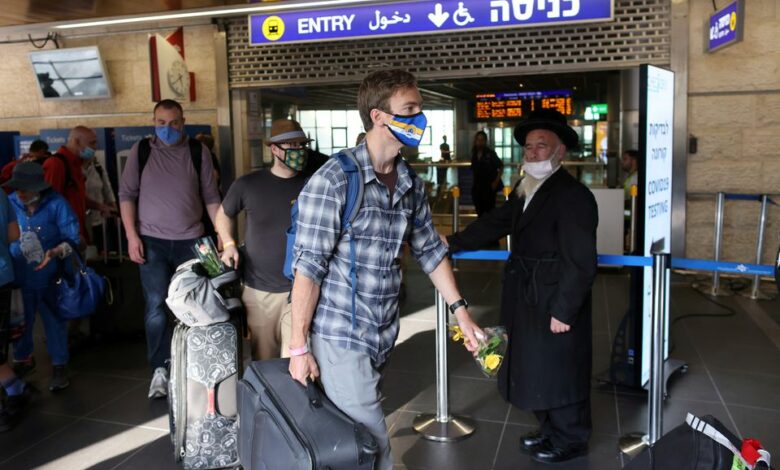
JERUSALEM, Oct 21 (Reuters) – Individual tourists who are vaccinated against COVID-19 will be able to enter Israel from month, the government said on Thursday, further easing curbs on foreign arrivals that were imposed when the pandemic broke out.
A joint plan between the tourism and health ministries and Prime Minister Naftali Bennett will allow the admission of foreigners who received vaccines within the last six months from Pfizer/BioNTech, Moderna, AstraZeneca, Johnson & Johnson, Sinovac and Sinopharm as of Nov. 1.
Under the plan, those who have recovered from COVID-19 may also enter Israel, subject to receiving one vaccine dose approved by the World Health Organization.
The plan is subject to cabinet approval and “will be updated in accordance with developments and the discovery of new variants”, the joint statement said.
On Sunday, Bennett told cabinet ministers “as we are managing the gradual exit from the Delta wave, we are preparing the infrastructure for the ‘Omega’ scenario’,” the code name for a new variant.
Israel’s borders have largely been closed to foreigners since March 2020. It has in recent months allowed in small groups of vaccinated tourists and first-degree relatives of Israelis.
The tourism ministry has been pushing hard to allow all vaccinated tourists to enter. Israel’s economy is open with the exception of the battered tourism sector.
The health ministry has advised caution given the possibility of new coronavirus variants.
Tourism in 2019 hit a record high of 4.55 million visitors, contributing 23 billion shekels ($7.2 billion) to Israel’s economy.
With daily infections near zero in June, Israel was set to open to all foreign tourists for the peak summer season but the Delta variant led to a spike, putting those plans on hold.
On Wednesday, 1,021 people tested positive for the coronavirus. While there are more than 15,000 active cases, only 331 are considered in serious condition.($1 = 3.2078 shekels)
(This story corrects day of week in final paragraph to Wednesday, not Tuesday)
Reporting by Steven Scheer; Editing by Alex Richardson




